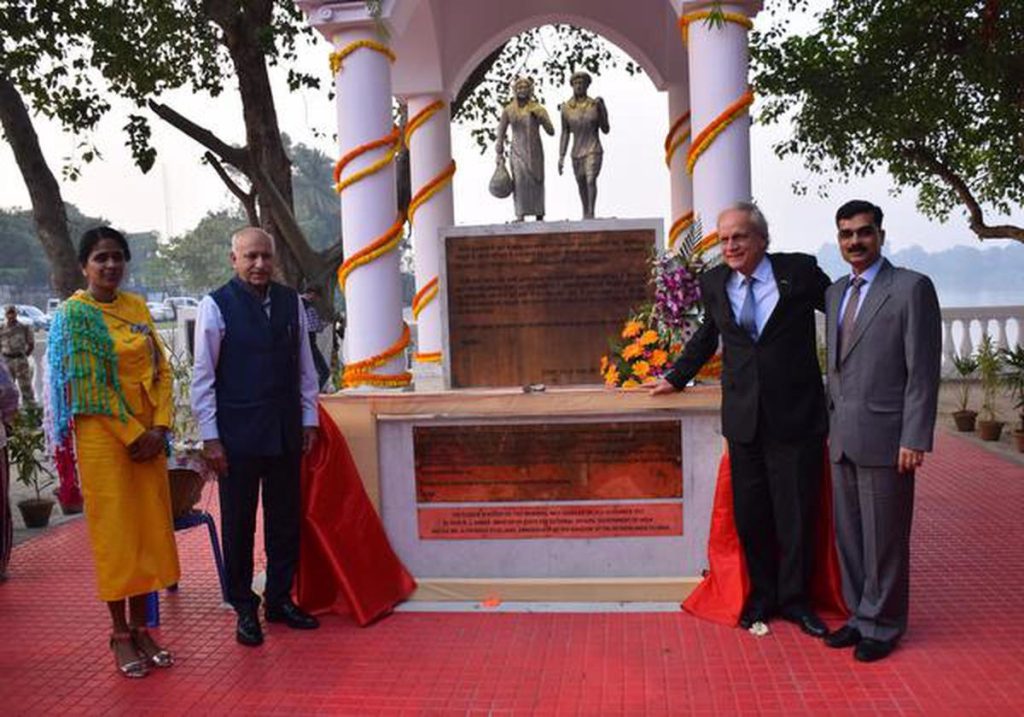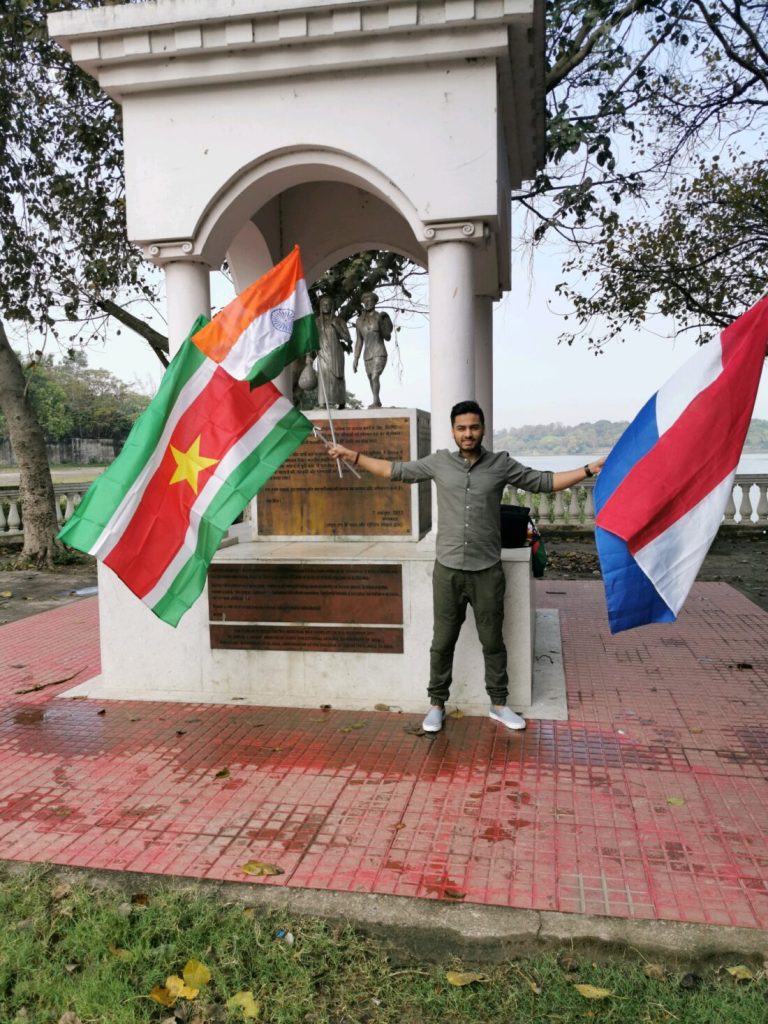Original source “The Hindu” – november 25, 2017

On February 26, 1873, Lalla Rookh, the first ship carrying indentured labourers, set sail from one of the ghats on River Hooghly in Calcutta for Suriname. More than 144 years later, on Saturday, a plaque was unveiled at the same ghat, now known as Suriname Ghat, commemorating the journey of those labourers who crossed seven seas to work in a different land.
“This is the ghat where my ancestors stood on the Indian soil for the last time,” Suriname’s ambassador to India Aashna Kanhai said at the event. Ms. Kanhai said between 1873 and 1916, more than 34,000 labourers from East India left for Suriname and 65% of these people never came back.
The plaque, in Dutch, was unveiled at the Mai-Baap Memorial in Kolkata’s Garden Reach area. Ambassador of the Kingdom of Netherlands Alphonsus Stoelinga said the memorial celebrated a shared period of history between India, Suriname and the Netherlands.
Mr. Stoelinga said that slavery in Suriname was abolished in 1863 and it was in 1873 that there was an agreement between the British government and the government of Netherlands for transport of contract labourers from India to work in the sugar plantations of Suriname. The memorial of ‘Mai-Baap’ was unveiled at the Suriname Ghat by Union Minister for External Affairs Sushma Swaraj in October 2015.
It is an aluminium representation of an Indian couple, carrying a potli (a small sack), going to work as labourers in far off countries on the other side of globe. Incidentally, the original Mai-Baap monument is in Paramaribo, the capital of Suriname, and symbolises the first Indian man and woman to set foot in this Dutch-speaking nation.
Speaking on the occasion, Minister of State for External Affairs M.J. Akbar talked about the horrors of colonial rule and said those labourers who left were told that they would return after five years but there was no such return.
“This was not a river of hope, this was a river of no return,” Mr. Akbar said, referring to the Hooghly. He described the story of colonial rule as the “story of thugee” and pointed out that peasants in the eastern India reeled under the taxes imposed by the British.
“While we remember the tragedy, we are celebrating the resilience of human spirit,” Mr. Akbar said.
Vinit Kumar, Chairman of Kolkata Port Trust, said work was already on to make the spot accessible to public. “We are working to ensure that there is an approach road for the general public to this Suriname Ghat and jetty. We are also planning to ensure that this important historical place be a part of different heritage tours and walks,” he said.
